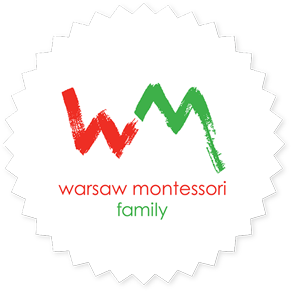An Investment in Your Child’s Future
Why Bilingual Education in a Montessori School Is an Investment in Your Child’s Future
Today’s world presents children with new challenges, but it also opens doors to incredible opportunities. In response to the needs of a global society, Warsaw Montessori School, in cooperation with the Duhovka Institute and Duhovka Elementary School in Prague, has developed and implemented a comprehensive bilingual education program based on Maria Montessori’s philosophy. This program was created as part of an international Erasmus+ project and is thoroughly described in the document Montessori Bilingual Innovations.
Bilingualism: A Path to Holistic Development
Children who begin learning a foreign language from an early age gain not only enhanced communication skills but also improved cognitive abilities. Research in Second Language Acquisition (SLA) shows that children who learn languages naturally—through context and everyday experiences—develop more harmoniously. The Montessori method perfectly supports this process, offering a rich, sensory-based learning environment.
What Makes the Montessori Bilingual Program Unique?
The program is designed with the real needs of children and their families in mind:
- Learning languages through action, exploration, and hands-on experience.
- Integrated instruction combining language learning with subjects like mathematics, science, and history.
- Bilingual classroom environments that are pressure-free and respect the child’s natural development.
The Parent’s Role in the Process
Parents play a crucial role in the success of bilingual education. We encourage active collaboration with teachers, participation in school events, reading with children in both languages, and openness to cultural diversity. Such involvement supports not only language development but also the child’s emotional and social growth.estment in Your Child’s Future
Today’s world presents children with new challenges, but it also opens doors to incredible opportunities. In response to the needs of a global society, Warsaw Montessori School, in cooperation with the Duhovka Institute and Duhovka Elementary School in Prague, has developed and implemented a comprehensive bilingual education program based on Maria Montessori’s philosophy. This program was created as part of an international Erasmus+ project and is thoroughly described in the document Montessori Bilingual Innovations.
Bilingualism: A Path to Holistic Development
Children who begin learning a foreign language from an early age gain not only enhanced communication skills but also improved cognitive abilities. Research in Second Language Acquisition (SLA) shows that children who learn languages naturally—through context and everyday experiences—develop more harmoniously. The Montessori method perfectly supports this process, offering a rich, sensory-based learning environment.
What Makes the Montessori Bilingual Program Unique?
The program is designed with the real needs of children and their families in mind:
- Learning languages through action, exploration, and hands-on experience.
- Integrated instruction combining language learning with subjects like mathematics, science, and history.
- Bilingual classroom environments that are pressure-free and respect the child’s natural development.
The Parent’s Role in the Process
Parents play a crucial role in the success of bilingual education. We encourage active collaboration with teachers, participation in school events, reading with children in both languages, and openness to cultural diversity. Such involvement supports not only language development but also the child’s emotional and social growth.


